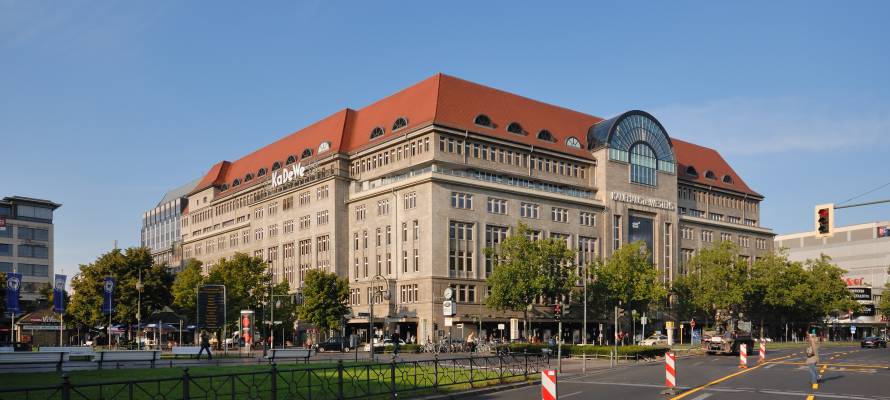Europe’s largest department store, the Kaufhaus des Westens, or KaDeWe (German: Department Store of the West), in Berlin, removed Israeli-made products from its seven floors until they receive further clarifications from the European Union regarding its decision to label Israeli products made in Judea and Samaria.
In 1926, the already large department store was purchased by Hermann Tietz’s Hertie company, who renovated and modernized it, and vastly expanded its from its original 260,000 sq. ft. to 646,000 sq. ft., adding two new floors. When the Nazis rose to power the new race laws prevented Hertie from maintaining its ownership. They had to sell to Arians.
Today, it’s not Germans but a privately-held Thai firm named Central Group pulling Jewish products off the shelves, or, as KaDeWe spokesperson Petra Fladenhofer told Der Spiegel: “We have taken the corresponding products out from our line of goods. We will, after an appropriate labeling, put them back in our product line.”
“KaDeWe offers an international assortment and we are very proud of it,” the store wrote on its Facebook page. “Of course our assortment contains many products from Israel.”
“As part of periodic inspections in the store, some products are taken off the shelves for a short period of time. After completing the tests we return the products to the shelves immediately,” KaDeWe wrote, in what seems to be an effort to brush off charges that it is boycotting Israel.
“Unfortunately these facts were mislead in some media. We deeply regret this,” it said. KaDeWe stands for cosmopolitanism and internationalism. We reject any form of discrimination and intolerance.”
But Israelis are unimpressed with the store’s explanations.
Prime Minister Benjamin Netanyahu made the following remarks on Sunday at the start of the weekly Cabinet meeting: “First, I would like to comment on the KaDeWe department store in Berlin. This department store had been owned by Jews; the Nazis took it. Absurdly, the store is now labeling products from communities in Judea, Samaria and the Golan Heights.
“It started with labeling products and now we are told that the products have been removed from the shelves – a boycott in every respect. We strongly protest this step, which is unacceptable morally, historically and on its merits. We expect the German government, which came out against product labeling, to act on this grave matter.”
KaDeWe boasts 380,000 inventory items. Most of the “settlements products” were likely removed from the store’s 6th and 7th floors, which are entirely devoted to food. The 6th floor food hall is called “Delicatessen,” offering a wide variety of food and beverages. It has around 110 cooks and 40 bakers and confectioners stocking more than 30 gourmet counters. The top floor includes a winter garden with a 1000-seat restaurant surrounded by a wall of windows offering a view over of Wittenbergplatz square.
Another major Berlin store chain, Galeria Kaufhof, still offers several products that are made in Judea and Samaria and the Golan Heights. These include wine, food and cosmetics. “It is not the policy of Galeria Kaufhof to allow politics or religion influence our procurement policy,” said a spokesman for the company.
By: JNi.Media










